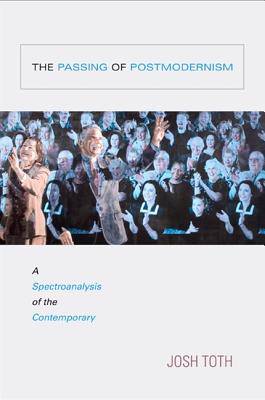
- Afhalen na 1 uur in een winkel met voorraad
- In januari gratis thuislevering in België
- Ruim aanbod met 7 miljoen producten
- Afhalen na 1 uur in een winkel met voorraad
- In januari gratis thuislevering in België
- Ruim aanbod met 7 miljoen producten
Omschrijving
Examines the increasingly prevalent assumption that postmodernism is over and that literature and film are once again engaging sincerely with issues of ethics and politics.
The Passing of Postmodernism addresses the increasingly prevalent assumption that a period marked by poststructuralism and metafiction has passed and that literature and film are once again engaging sincerely with issues of ethics and politics. In discussions of various twentieth- and twenty-first-century writers, directors, and theorists-from Michel Foucault and Slavoj Zizek to Thomas Pynchon and David Lynch-Josh Toth demonstrates that a certain utopian spirit persisted within, and actually defined, the postmodern project. Just as modernism was animated by an idealistic belief that it could finally realize the utopia beckoning on the horizon, postmodernism was compelled by an equally utopian belief that it could finally reject the possibility of all such illusory ideals. Toth argues that this specter of an impossible future is and must remain both possible and impossible, a ghostly promise of what is always still to come.
Josh Toth teaches literature and critical theory at Grant MacEwan College and is coeditor (with Neil Brooks) of The Mourning After: Attending the Wake of Postmodernism.
Specificaties
Betrokkenen
- Auteur(s):
- Uitgeverij:
Inhoud
- Aantal bladzijden:
- 210
- Taal:
- Engels
- Reeks:
Eigenschappen
- Productcode (EAN):
- 9781438430355
- Verschijningsdatum:
- 7/04/2010
- Uitvoering:
- Hardcover
- Formaat:
- Genaaid
- Afmetingen:
- 157 mm x 231 mm
- Gewicht:
- 408 g

Alleen bij Standaard Boekhandel
Beoordelingen
We publiceren alleen reviews die voldoen aan de voorwaarden voor reviews. Bekijk onze voorwaarden voor reviews.









